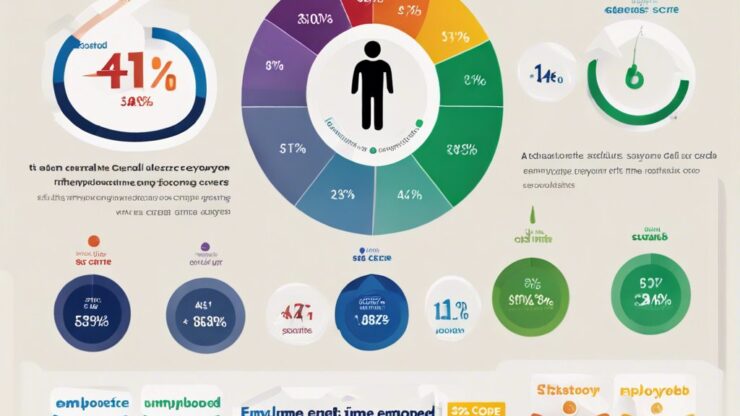Your employment status plays a crucial role in determining your credit score. While it’s common knowledge that income can influence financial decisions, many people overlook how their job stability and type of employment can directly impact their creditworthiness. Understanding this relationship is essential for anyone looking to improve their credit score or secure financial products like loans and mortgages.
How Employment Status Affects Your Credit Score
Credit scoring models, such as FICO and VantageScore, consider various factors when calculating your credit score. Although employment history is not a direct component of these models, it significantly influences your financial behavior and credit utilization. Let’s explore how different employment statuses can impact your credit score:
- Stable Employment: A consistent job history shows lenders that you have a reliable source of income, which can lead to better credit offers.
- Unemployment: Gaps in employment can lead to missed payments or increased debt levels, negatively affecting your credit score.
- Self-Employment: While being self-employed offers flexibility, it can also present challenges in proving income stability to lenders.
Strategies to Enhance Your Credit Score Regardless of Employment Status
No matter your job situation, there are proactive steps you can take to improve your credit score. Here are some practical strategies to consider:
- Maintain a Good Payment History: Always pay your bills on time. Payment history is one of the most significant factors affecting your credit score.
- Manage Your Credit Utilization: Keep your credit card balances low relative to your credit limits to demonstrate responsible credit use.
- Regularly Check Your Credit Report: Monitoring your credit report allows you to catch errors or signs of identity theft, which can adversely affect your score.
- Consider Secured Credit Cards: If you have a low credit score due to unemployment or instability, a secured credit card can help rebuild your credit profile.
The Importance of Employment Verification
When applying for loans or credit, lenders often verify employment to assess your ability to repay debts. This verification process can influence the terms of your credit, including interest rates and credit limits. Being prepared with documentation of your employment status can help you secure better financial deals.
Disclaimer
This article has been created or edited with the support of artificial intelligence and is for informational purposes only. The information provided should not be considered investment advice. Please seek the support of a professional advisor before making any investment decisions.






